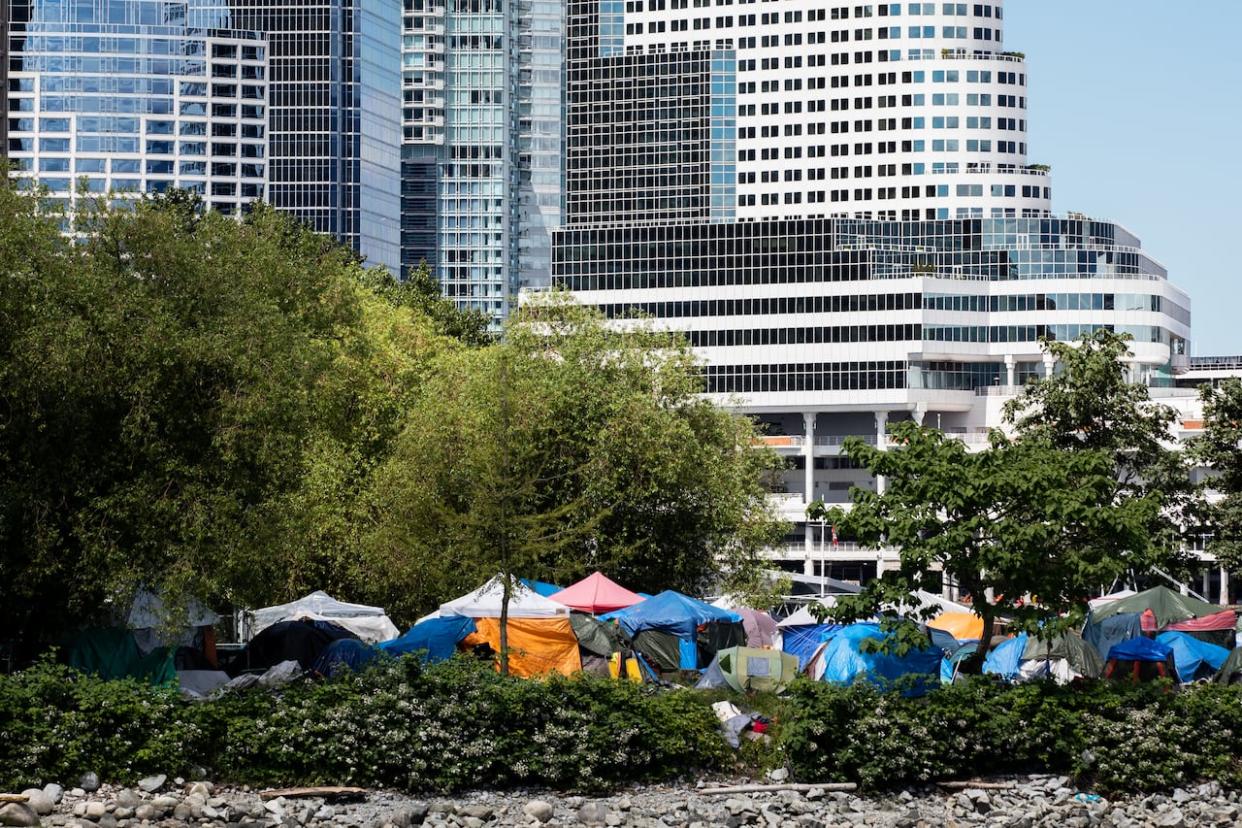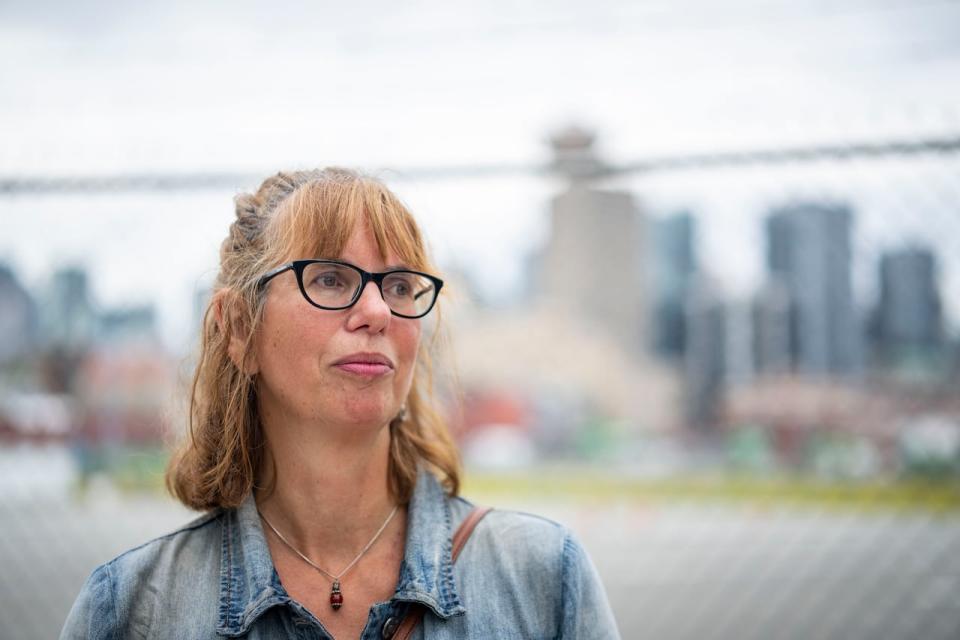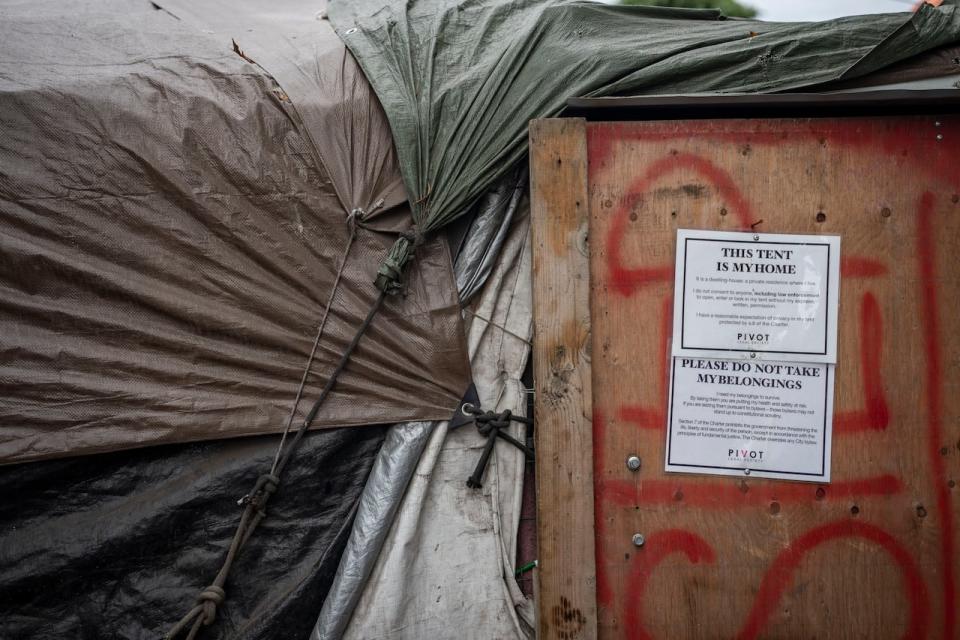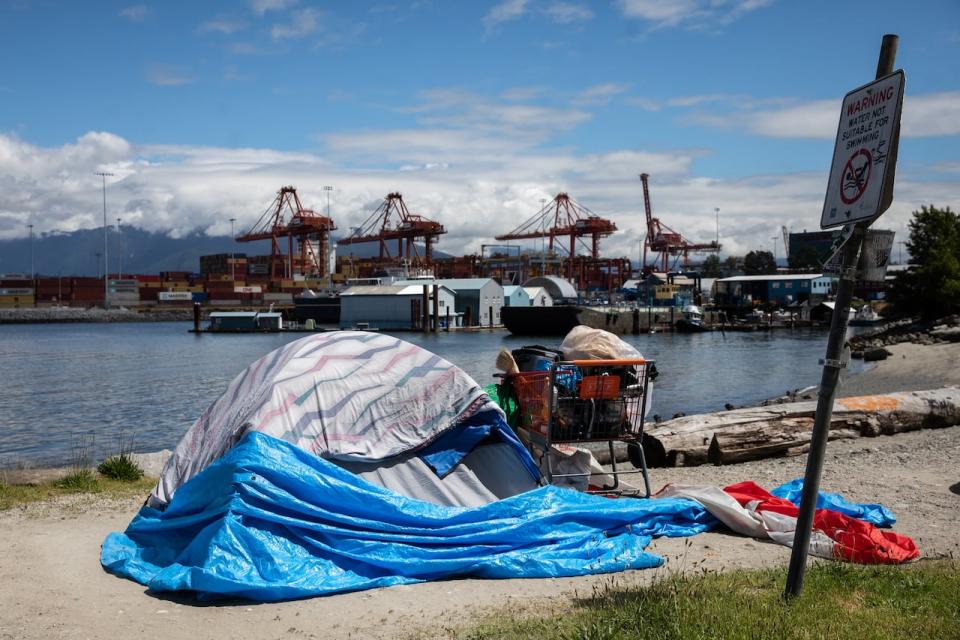Vancouver encampment residents to have complaint against city heard by human rights tribunal

The B.C. Human Rights Tribunal will hear a complaint from people who camp at CRAB Park and allege the City of Vancouver and its park board discriminate against them by not providing "basic survival services."
Tribunal member Steve Adamson said in a letter to the group that the tribunal will also fast-track the initial stages of the complaint to give them the chance to resolve the issue through a mediation process.
The group claims discrimination based on Indigenous identity, and physical and mental disabilities, among other allegations. They say there is insufficient electricity, a lack of sanitation, and the park board has not provided washroom facilities.
Fiona York, who speaks for those living at the encampment, says people living in the 50 tents at the park share one running water hose, while the closest washrooms are about 225 steps away and have no electricity.

Fiona York, who speaks on behalf of CRAB Park residents, stands at the encampment on Aug. 8. York says she hopes the complaint, if successful, improves the lives of the community. (Ethan Cairns/CBC)
York says residents have had concerns for years and feel they have been treated unfairly because such basic services are being provided at other parks.
Adamson says in the letter that from the information provided to the tribunal, the group has an "ongoing service relationship" with the city and park board.
"They alleged the respondents allow the inadequacies to make residents uncomfortable enough that they go into shelters or housing that they would not otherwise accept," the letter says.
York says the acceptance by the tribunal to hear their complaint gives residents a sense of "validation and acknowledgment."
She said encampment residents had multiple back-and-forth discussions with the city over the provision of basic facilities, but felt they weren't being heard by officials.
She says she's hopeful the complaint will improve the lives of the community, especially vulnerable and marginalized people.

CRAB Park residents say that the one bathroom in the park can often be too far away for residents to use during times of inclement weather. (Ethan Cairns/CBC)
"When we talked about washrooms and showers ... there's only two of them and they're quite far away from the camp," she told CBC News. "Obviously for someone who's a little bit older, who may have a mobility issue, when it's dark out, when it's wet and the weather is inclement, it's really difficult to access those washrooms."
She also argues that providing more electricity and lighting would benefit the residents' health and safety, as well as help with sanitation efforts.
In an emailed statement to CBC News, the City of Vancouver said it was unaware of the complaint and would be reviewing it once served with it.
BCCLA hopes case sets precedent
The B.C. Civil Liberties Association (BCCLA) is watching the case closely as it has raised similar issues with the city and province through its advocacy work.
Vibert Jack, BCCLA's litigation director, said there was little doubt that CRAB Park residents had their human rights violated.
"They have a right to the encampment at CRAB Park," he said. "That was recognized by our courts because our governments have failed to provide adequate housing for our homeless population."

A tent is shown at CRAB Park on June 22, 2022. Park residents have said they have little access to electricity, unlike a majority of other parks in the city. (Justine Boulin/CBC)
Jack said that national and international authorities have called on governments to provide adequate housing for all — but that, legally, it's still unclear what a person's rights are when they're within an encampment.
"Do they have the right to things like toilets, water [and] shade?" he asked. "All things that, of course, are necessary for them to live in a dignified manner, or live at all in some cases.
"If this case was successful, I think having those rights recognized would really advance the rights of homeless people here in the province."

